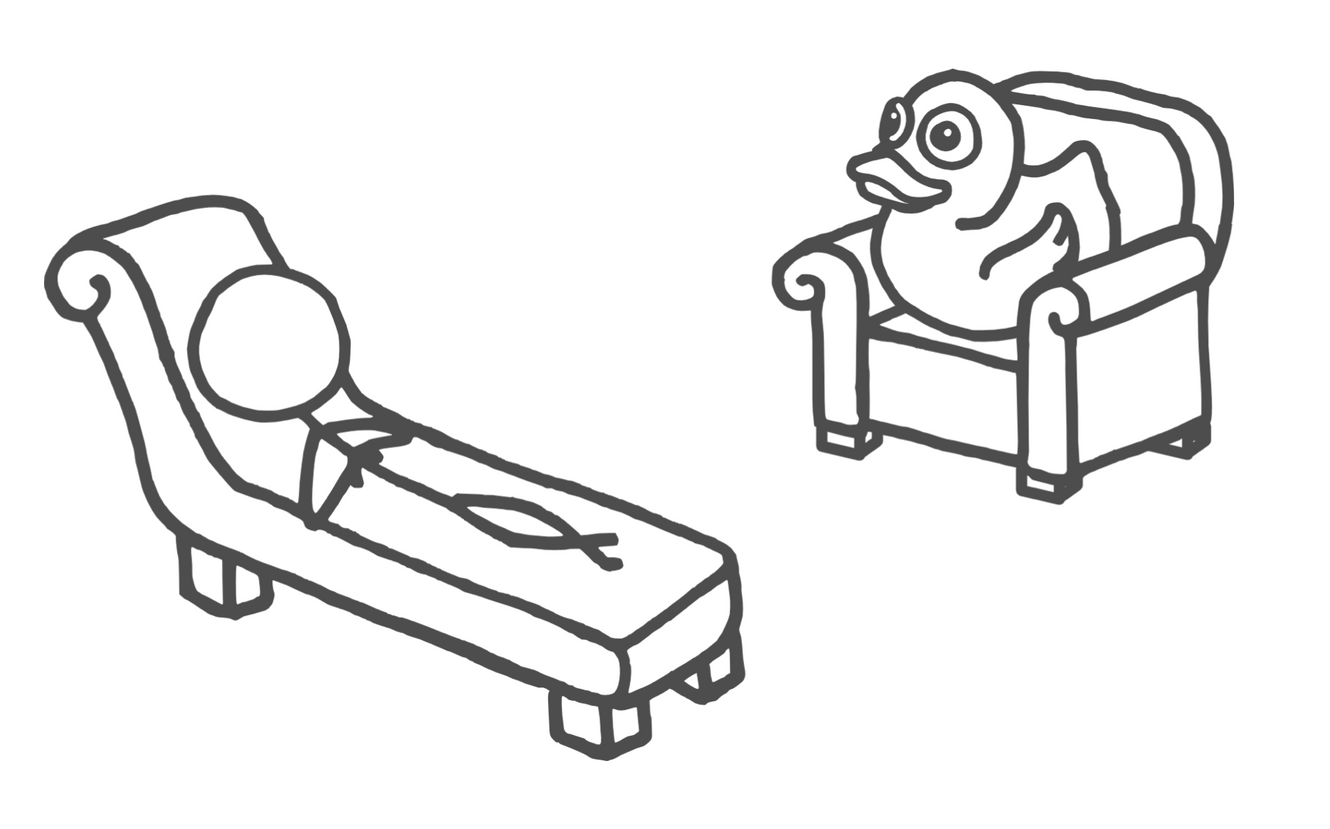...uplinks, including horizontal links to competitors or antipatterns
Problems that seem like they require the help of another to solve are sometimes solved by formulating them clearly.
Occasionally, a software developer will get stuck trying to debug a program, walk over to a colleague’s desk for help, and then—halfway through their explanation of the problem—suddenly realize exactly what’s wrong with their code and how to go about fixing it.
This is a common enough occurrence at tech companies that many have a tradition of providing literal rubber ducks for developers to explain their problems to, out loud. The idea is that, much of the time, the colleague doesn’t actually have to say or do anything—the value comes from taking a vague sense of the problem and articulating it clearly enough for someone else to understand, and so explaining to a rubber duck does the trick without using up anyone else's time and attention.
The rubber duck is one model for how to help people “debug” the problems in their lives. You’re there so that they can clarify their own understanding, not to provide them with an outside solution.
Of course, often people really could use some help, and a person can be useful in a way that even the best rubber duck can’t manage. Socrates (as portrayed in Plato’s dialogues) used probing questions to help people think through complicated philosophical questions, and highlight places where those thoughts were vague, confused, or incomplete. You can do the same thing in your own pair debugs, playing a "Socratic duck"—staying silent where your partner just needs to clarify their own thinking, and gently challenging or probing where your partner needs to change their focus or dig deeper.
A few ways to be a good Socratic Duck:
- Counter vagueness. Ask for specific examples whenever they talk about a general problem. Probe for details whenever they gloss over part of the problem, or start simplifying to fit everything into a narrative.
- Draw out their experience. Try to get them to remember times they’ve solved a similar problem, or encourage reference class hopping (if they’re thinking of their problem as being all about social anxiety, see if they view things differently when they think about parties versus small group conversations). In general, help them gather useful data from the past, so that they can see patterns and causal relationships as clearly as possible.
- Map out the parts of the problem. If you spot implications or assumptions, ask questions that take those implications or assumptions as true, and see if you can draw your partner toward a new insight. Try breadth-first searches before diving deep into any one part of the problem—can your partner identify their key bottleneck?
Socratic ducking is superior to directly offering advice, because it draws the solution out of them—in the metaphorical sense, you’re neither giving them fish nor teaching them how to fish, but helping them discover all of the principles they need to invent the concept of fishing, so that they can invent other concepts later, too.
Therefore:
Clearly lay out your problems for yourself, to see if any solutions are obvious; when others bring problems to you, seek to help them formulate the problem, which will sometimes make the solution obvious to them.

downlinks